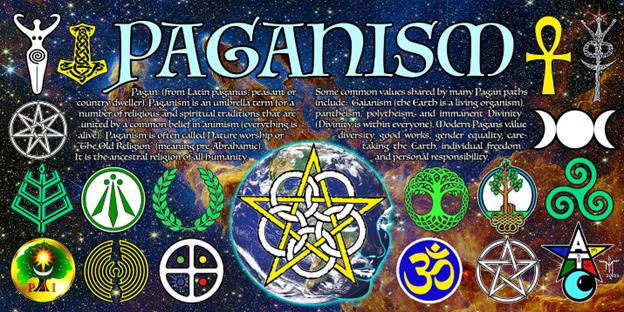
Pagan (from Latin, paganus; peasant or country dweller). Paganism is an umbrella term for a number of religious and spiritual traditions that are united by a common belief in animism (everything is alive). Paganism is often called Nature worship or “The Old Religion” (meaning pre-Abrahamic). It is the ancestral religion of all humanity.
Some common values shared by many Pagan paths include Gaianism (the Earth is a living organism), pantheism, polytheism and immanent Divinity (Divinity is within everyone). Modern Pagans value diversity, good works, gender equality, care-taking the Earth, individual freedom and personal responsibility.
Pagan Precepts
Historical Statements from Significant Events
- 1970: Council of Themis (34 members) “Common Themes of Neo-Pagan Religious Orientation”
- 1974: American Council of Witches (73 members) “13 Principles of Wiccan Belief”
- 1975: Covenant of the Goddess (Charter and Bylaws ratified by members of 13 California congregations of nine different traditions) “CoG Code of Ethics” (https://cog.org/about-cog)
- 1990: Universal Federation of Pagans (100 founding members) “UFP Articles of Pagan Belief”
- 1999: Papal Apology Project (Core Committee 22 members; the petition contains signatures of 238 Pagan leaders, 88 Pagan organizations, 14 Christian Clergy, 41 academic scholars, and 1,256 other members of the worldwide Pagan community, as well as other non-Pagan sympathizers.) “Papal Apology FAQ sheet”

